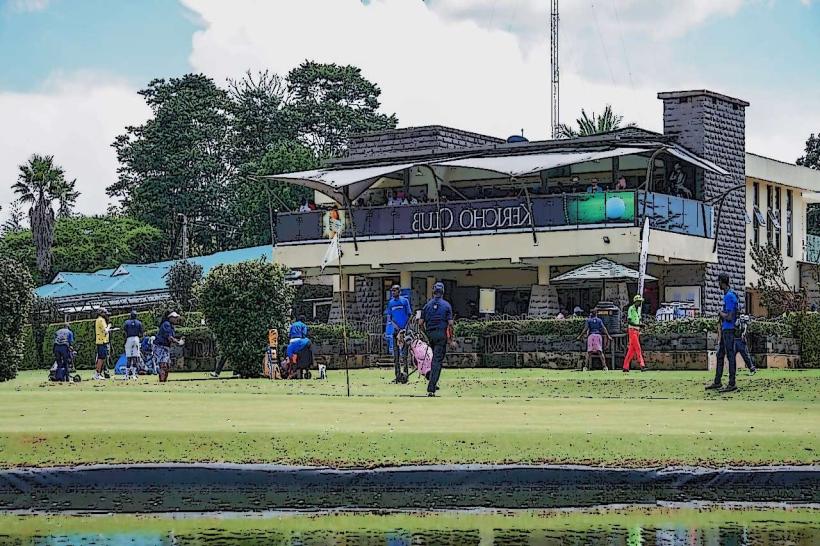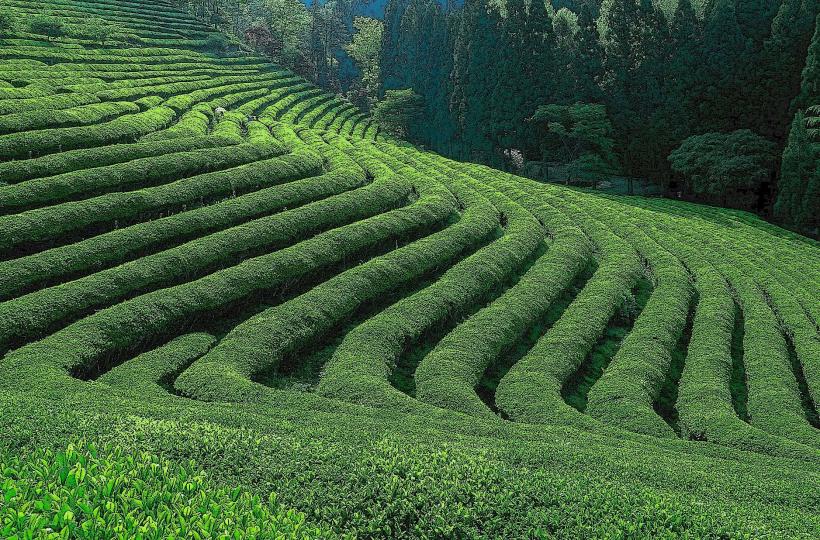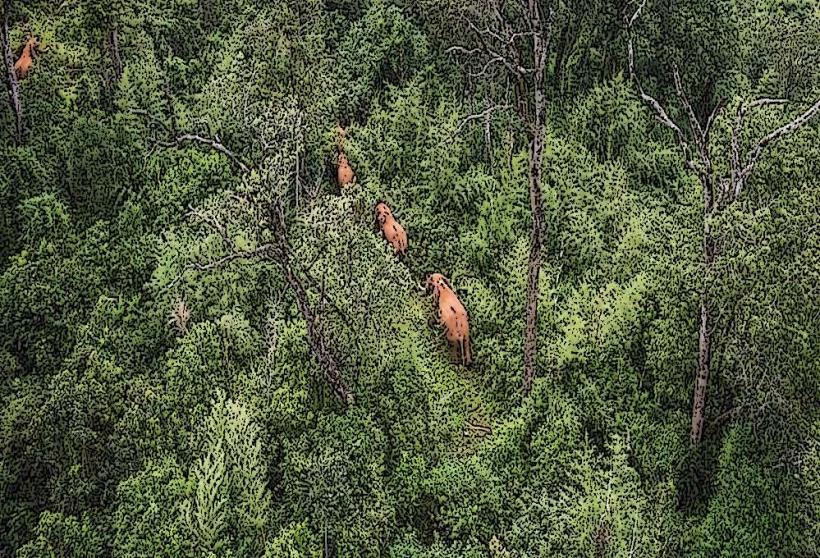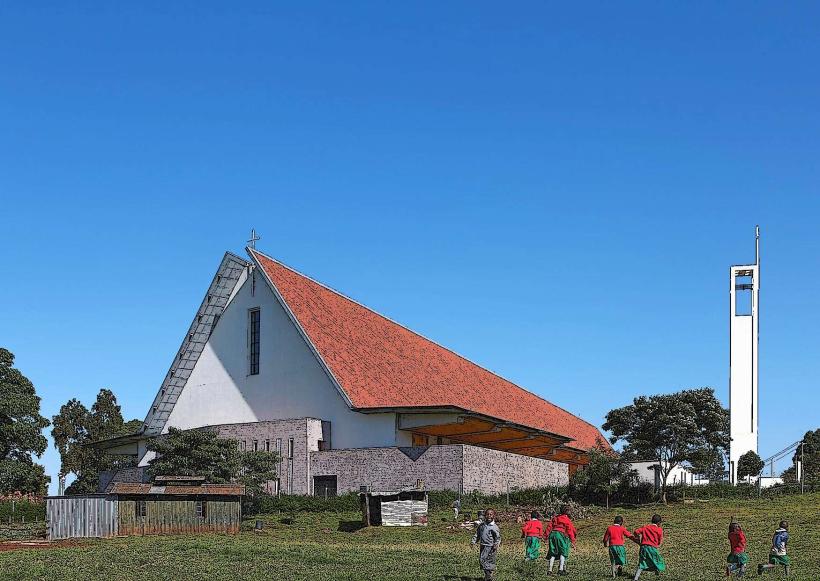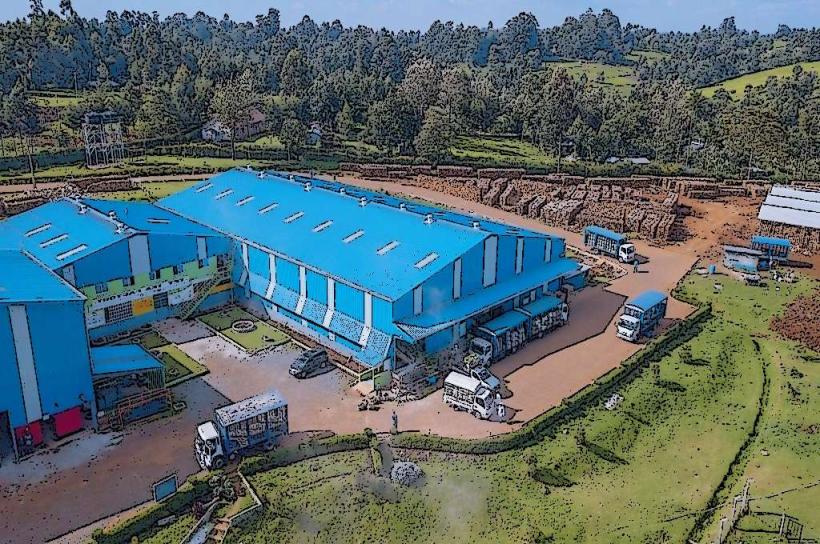Information
City: KerichoCountry: Kenya
Continent: Africa
Kericho, Kenya, Africa
Kericho is a town located in the western part of Kenya, in Kericho County, which is part of the Rift Valley Region. It lies approximately 300 kilometers (186 miles) west of Nairobi, and about 70 kilometers (43 miles) northeast of Kisumu. Kericho is renowned for its rich agricultural land, particularly in the cultivation of tea, and is considered one of the major tea-producing regions in Kenya.
Geography and Climate
Kericho is situated at an altitude of about 2,100 meters (6,890 feet) above sea level, giving it a cool and temperate climate. The region experiences moderate to heavy rainfall throughout the year, with the long rains occurring from March to May and the short rains between October and December. The climate is favorable for agricultural activities, especially tea farming, and the lush greenery around the town reflects its fertile soil.
The town is surrounded by scenic hills, forests, and plantations, which contribute to its picturesque landscape. The Kipkabus River, which runs through the area, adds to the natural beauty of the region.
Economy
The economy of Kericho is primarily driven by agriculture, particularly tea farming. The area is home to several large tea plantations, including those operated by Unilever Kenya and James Finlay Kenya, which are among the largest tea companies in the country. Tea farming in Kericho dates back to the early 20th century, and the region is one of the largest producers of tea in Kenya, which is one of the world’s leading exporters of the commodity.
In addition to tea, Kericho is known for the cultivation of other crops, including maize, beans, potatoes, and vegetables. The fertile land in the area supports a variety of farming activities, with smallholder farmers supplementing the large tea plantations by growing food crops for both local consumption and commercial sale.
The town also has a small industrial base, with the tea-processing factories being a key part of the local economy. These factories process the tea leaves harvested from the surrounding plantations and export the finished tea products to international markets.
The growing town has also seen a rise in trade and services, with retail businesses, supermarkets, and markets catering to both residents and visitors. Additionally, Kericho serves as a commercial center for the surrounding rural areas, where many farmers bring their goods for sale.
Transportation
Kericho is well connected to other parts of Kenya by road. The town is located at the junction of several important highways, including the Nakuru-Kisumu Highway, which connects Kericho to major cities such as Nakuru, Nairobi, and Kisumu. This road network facilitates the transportation of goods and people between Kericho and other parts of the country.
Public transport, including buses and matatus (shared minivans), is commonly used by locals and travelers to move around the town and to nearby cities. While there is no major airport in Kericho, Kisumu International Airport and Eldoret International Airport are the nearest international airports, located about two to three hours away by road.
Demographics
Kericho has a population of over 100,000 people, with the majority belonging to the Kalenjin ethnic group. The town is a cultural and economic center for the Kalenjin people, who are known for their strong community ties and agricultural practices.
In recent years, Kericho has seen significant population growth, driven by migration from rural areas and the expansion of the town's economy. The town is also home to a mix of other ethnic groups, including Kikuyu, Luo, Luhya, and other communities, making it a multicultural and diverse place.
Kericho's population is relatively young, with many young adults and children. The rapid growth of the town has been accompanied by urbanization, with new housing developments and improved infrastructure aimed at accommodating the growing population.
Education
Kericho has a range of educational institutions, including primary and secondary schools, as well as higher education facilities. The town has both public and private schools, providing education to students from different backgrounds.
Kericho High School and Kabianga High School are some of the well-known secondary schools in the area, offering both local and national curricula. In addition to schools, Kericho is home to Kabianga University, a public institution that offers higher education in fields such as education, business, and agricultural sciences. The university plays an important role in educating the local population and fostering skills that contribute to the town's economic development.
Healthcare
Kericho has several healthcare facilities, including both public and private hospitals and clinics. Kericho District Hospital is the main public healthcare provider, offering a wide range of services, including emergency care, outpatient services, and specialized medical treatments. The hospital also serves as a referral center for the surrounding areas in Kericho County.
In addition to the public hospital, there are private hospitals such as The Nairobi Women’s Hospital Kericho and Kericho Medical Centre, which provide high-quality medical care. These hospitals serve both the local population and visitors from surrounding regions. However, like many rural towns in Kenya, access to healthcare in some parts of Kericho may be limited, and the town is working to expand its healthcare infrastructure to meet the needs of its growing population.
Social and Cultural Life
Kericho is a lively town with a mix of traditional and modern cultural practices. The Kalenjin people, who dominate the area, have a rich cultural heritage, including traditional music, dance, and ceremonies. The town hosts several cultural festivals, including those celebrating the Kalenjin culture and traditions, where visitors can experience the music, dance, and rituals of the community.
The town also has various social amenities, including shopping centers, recreational parks, and sports facilities. Kericho Green Park is a popular recreational area where families and visitors enjoy outdoor activities and picnics. The town is also home to several hotels, restaurants, and cafes that cater to both residents and visitors.
Kericho’s social life is characterized by a blend of modern influences and traditional practices. The town is an important center for social and religious gatherings, with many churches and mosques serving the diverse communities in the area. The Kalenjin people’s strong sense of community is reflected in the town’s social fabric, where neighborly ties and collective activities are emphasized.
Tourism
Although Kericho is not a major tourist destination compared to other regions of Kenya, it has several attractions that appeal to visitors interested in nature, agriculture, and culture. The Kericho Tea Gardens, with their expansive green tea plantations, offer a unique experience for tourists, especially those interested in learning about tea farming and processing. Some tea plantations offer guided tours where visitors can observe the tea picking process and see how tea is processed and packaged.
Kericho is also close to several natural attractions, including Kakamega Forest and Rift Valley’s natural beauty. The nearby Kapsabet Hills and Chepkitale Forest provide opportunities for hiking, birdwatching, and nature walks.
Challenges and Development
Kericho, like many growing towns, faces several challenges related to urbanization and development. Rapid population growth has put pressure on housing, infrastructure, and public services, particularly in the areas of water supply, sanitation, and waste management. The town’s road network, although well developed, also faces congestion, especially during peak travel times.
The town is also affected by environmental issues, particularly deforestation and soil erosion, as a result of the expansion of tea farming and other agricultural activities. The local government and various organizations are working on sustainable agricultural practices and environmental conservation efforts to address these challenges.
Conclusion
Kericho is a key town in Kenya’s Rift Valley region, known for its rich agricultural heritage, particularly in tea farming, and its cool, temperate climate. The town’s growing economy, combined with its strategic location and vibrant cultural life, make it an important hub for trade, commerce, and education in western Kenya. While the town faces challenges related to infrastructure, rapid urbanization, and environmental conservation, it continues to grow and develop, positioning itself as a significant player in Kenya’s overall economic landscape.

